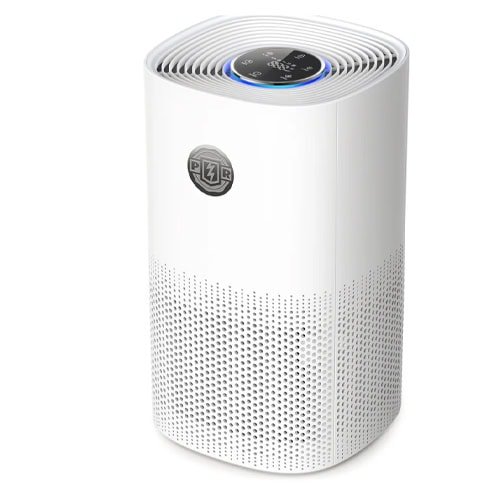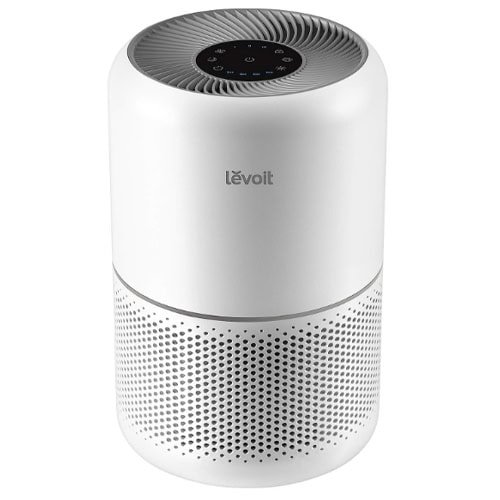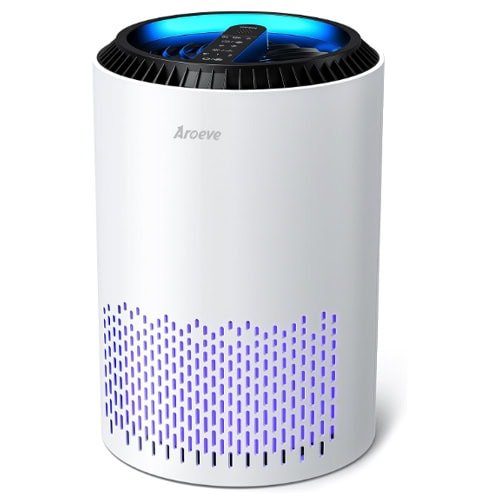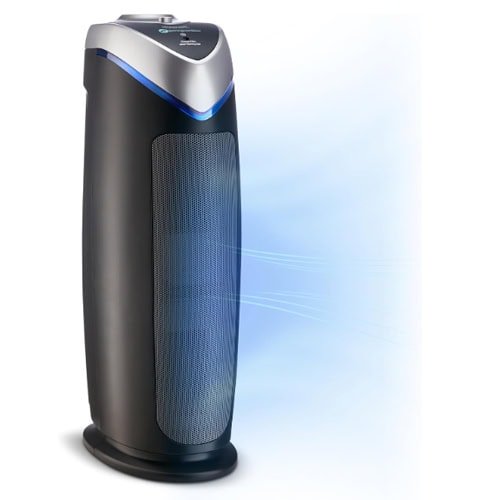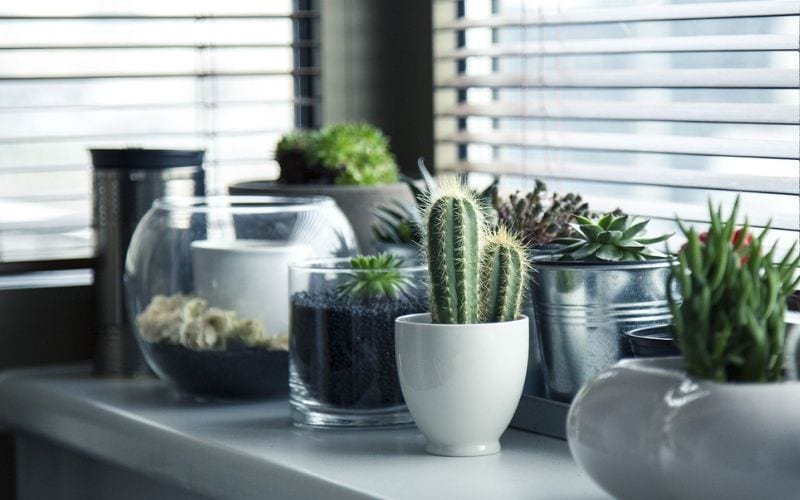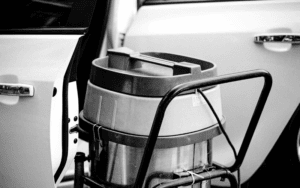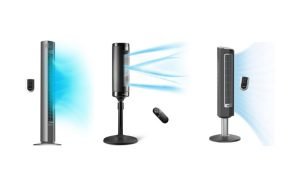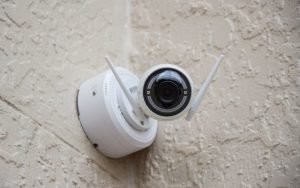Indoor air pollution is a major concern in today’s world, with contaminants like dust, pollen, pet dander, and smoke affecting the air quality inside our homes. An air purifier can remove these pollutants and create a healthier living environment. If you’re on the fence about investing in one, here are five compelling reasons why you need an air purifier.
Breathing clean air is essential for our overall well-being, yet many of us overlook the importance of indoor air quality. An air purifier can help eliminate harmful airborne particles, allergens, and odors, providing numerous benefits for your health and home. Whether you’re considering a Dyson air purifier, an Evoit air purifier, or any other reputable brand, investing in the best air purifier for your needs can make a significant difference.
How Does An Air Purifier Work?
Air purifiers work by drawing in air from the room and passing it through a series of filters. These filters are designed to capture various pollutants, such as dust, pollen, pet dander, smoke, and even some viruses and bacteria. The purified air is then circulated back into the room, providing a constant supply of clean, fresh air.
Many air purifiers use High-Efficiency Particulate Air (HEPA) filters, which can capture up to 99.97% of airborne particles as small as 0.3 microns. These filters are particularly effective for people with allergies or respiratory conditions, as they can significantly reduce the number of airborne allergens and pollutants in the home.
In addition to HEPA filters, some air purifiers also incorporate activated carbon filters. These filters are designed to remove odors, volatile organic compounds (VOCs), and gaseous pollutants from the air. Activated carbon filters work by absorbing these molecules onto their highly porous surface, effectively trapping them and preventing them from circulating back into the room.
An air purifier’s effectiveness depends on several factors, like the size of the room, the type and number of filters used, and the airflow rate (measured in cubic feet per minute or CFM). Most air purifiers have variable fan speeds, allowing you to adjust the airflow rate based on the level of air pollution in the room. Since the filters do all the heavy lifting, they need to be replaced periodically with new and efficient filters. Many air purifiers have indicator lights or sensors that remind you when it’s time to replace the filters.
By understanding how air purifiers work and following the manufacturer’s recommendations for maintenance and operation, you can enjoy the benefits of clean, fresh air in your home or office. Now, let’s understand what an air purifier does.
1. Improve Indoor Air Quality: Indoor air can be up to five times more polluted than outdoor air, according to the Environmental Protection Agency (EPA). An air purifier removes these pollutants, improving the overall air quality in your home or office.
2. Alleviate Allergy and Asthma Symptoms: Allergens like dust mites, pet dander, and pollen can trigger allergic reactions and asthma attacks. An air purifier removes these allergens from the atmosphere and relieves those with allergies and asthma.
3. Reduce Odors: Whether it’s cooking smells, pet odors, or smoke from nearby wildfires, an air purifier with an activated carbon filter can eliminate all kinds of unpleasant odors, leaving your home smelling fresh and clean.
4. Improve Sleep Quality: Clean air can lead to better sleep, as pollutants and allergens in the air can disrupt your sleep patterns. By using an air purifier in your bedroom, you can create a more comfortable and restful environment for a good night’s sleep.
5. Protect Your Health: Exposure to indoor air pollutants can lead to various health issues, including respiratory problems, headaches, and even an increased risk of certain diseases. Air purifiers reduce these risks by removing harmful particles from the air you breathe.
Types Of Air Purifiers
Air purifiers incorporate different technologies to keep the environment clean. Below we have listed the most common types of air purifiers based on the technologies they use:
1. HEPA (High-Efficiency Particulate Air) Purifiers: These air purifiers use a HEPA filter to capture airborne particles as small as 0.3 microns, including dust, pollen, pet dander, and smoke. HEPA filters are highly effective and most often recommended for people with allergies or asthma.
2. Activated Carbon Purifiers: These air purifiers use an activated carbon filter to remove odors, volatile organic compounds (VOCs), and gaseous pollutants from the air. They are particularly effective at eliminating smoke, cooking smells, and chemical odors.
3. Ionizers: Ionizers work by releasing negative ions into the air, which attract and capture airborne particles. While they can be effective at removing some pollutants, ionizers can also produce ozone, a potentially harmful gas.
4. UV (Ultraviolet) Purifiers: These air purifiers use ultraviolet light to kill airborne bacteria, viruses, and other microorganisms. UV purifiers are often used in combination with other filter types for added protection.
5. Ozone Generators: While some manufacturers claim that ozone generators can purify the air, they are not recommended for home use by the Environmental Protection Agency (EPA) and other health organizations due to the potential health risks associated with ozone exposure.
When choosing an air purifier, it’s essential to consider your specific needs and the size of the area you want to purify. Popular brands like Dyson and Evoit air purifiers offer a wide range of air purifiers with different features and filter types to suit various requirements.
Check Out These Air Purifiers:
6 Reasons Why You Need An Air Purifier
1. Reduce Secondhand Smoke
If you are exposed to secondhand cigarette smoke you will be inhaling the harmful nicotine at no fault of your own. An air purifier comes in handy in these environments. It removes damaging particles and odors from cigarette smoke, protecting your lungs from the long-term effects of nicotine. You should keep an air purifier especially if you have children living in close proximity to smoke. Children have more delicate lungs and protecting them early on can save them from degenerative respiratory issues.
2. Improve Productivity and Focus
An air purifier can improve your focus in 2 ways:
- It removes harmful allergens from the home environment which otherwise cause irritation in the morning and sometimes at night. Without these irritation-causing agents, you are more likely to get better sleep that gets you recharged and ready to concentrate on your daily affairs.
- When harmful chemicals and aerosols are removed from the environment, you will get better oxygenation throughout the body, including the brain. With better blood circulation and oxygenation, you are more likely to have more focus on the task at hand. This is why many workplaces are starting to install air-purifying filters.
3. Protect Your Home:
While the best cleaning tools will keep your home spic and span, they will not prevent the buildup of dust and dirt on your table tops. Air purifiers function by pulling the air and trapping debris and dust particles inside before releasing the fresh air into the atmosphere. With all the dust absorbed into the machine, you can get away with skipping your dusting routine now and again. At most you might have to replace the filters every few months which is much easier to do than cleaning the entire house, right? Although air purifiers are not famous for it, they do play a small role in keeping the home clean as well.
4. Enhance Comfort:
An air purifier not only improves the air conditions drastically and removes irritants, but it also maintains the humidity levels so that the environment is not too humid or dry, but perfect!
Those who have asthma or are prone to allergies can get a lot of comfort with an air purifier as it will remove most of the allergy-causing agents from the immediate environment; giving you the chance to breathe with relief.
5. Save Money:
While air purifiers require an initial investment, they can save you money in the long run. They result in fewer respiratory problems which automatically reduces medical bills. Additionally, it reduces the need for expensive cleaning materials and the number of cleanups you might need around the house. An air purifier is an asset as it saves you money, time, and resources.
6. Improve Mental Well-being:
Poor indoor air quality can limit the amount of oxygen reaching your brain. This often leads to brain fog and mental fatigue. When you breathe cleaner air you automatically supply more oxygen to your brain. This, combined with good sleep makes you feel fresh and ready to tackle any challenge that may come your way.
An air purifier is no longer a luxury in today’s world; it is a necessity. Investing in a high-quality air purifier presents an excellent opportunity to enhance the air quality in your home or office, alleviate allergy and asthma symptoms, diminish odors, improve sleep quality, and safeguard your overall health. Whether you select a Dyson air purifier, an Evoit air purifier, or any other trusted brand, choosing the optimal air purifier tailored to your requirements can significantly enhance the air you breathe. Don’t hesitate to take the first step toward a healthier and more comfortable living environment – invest in the best air purifier for your needs today.


